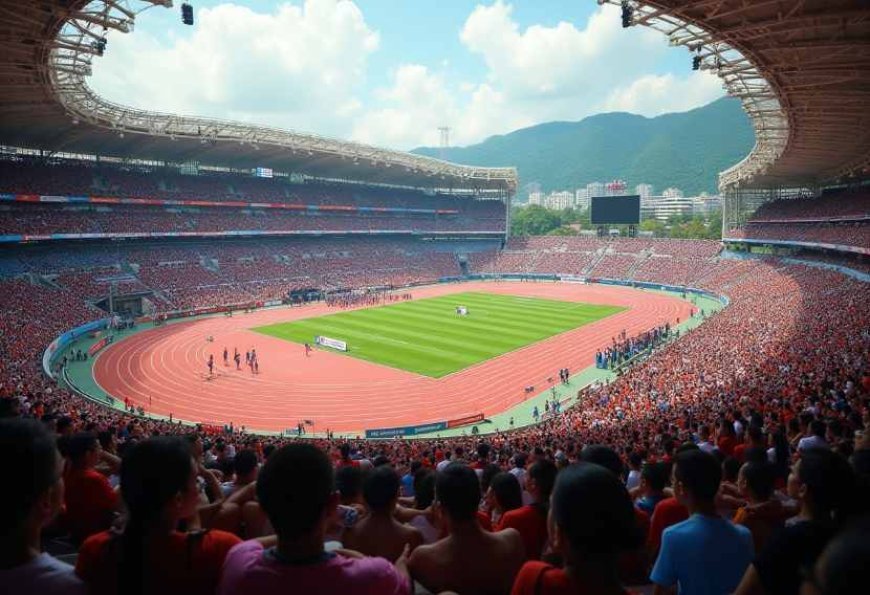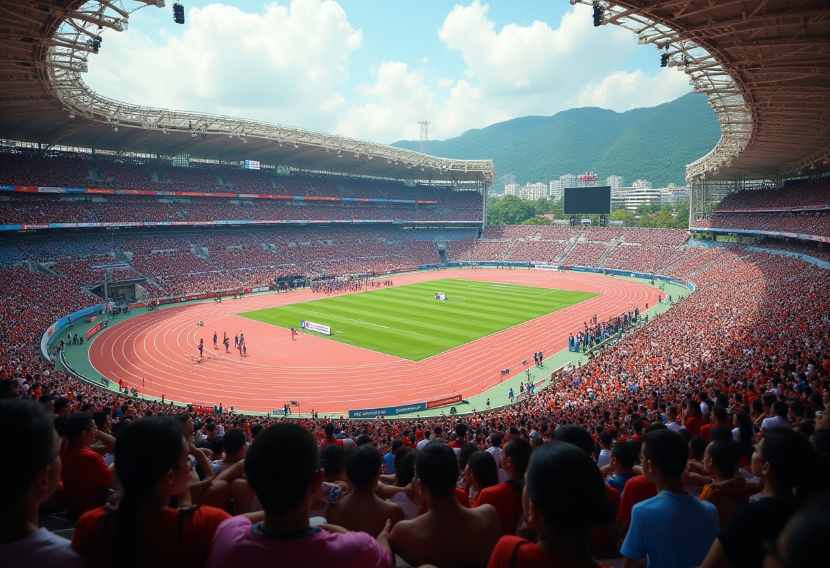Philippines Seeks to Host the 2033 World Games: A Boost for Sports Tourism


Recently, the Philippine government signaled its intent to bid for the 2033 World Games, an eminent quadrennial multi-sport summit centering on non-Olympic disciplines. Because the Games rotate amongst continents, Manila’s aspirational candidacy marks a strategic inflection point, enabling the archipelago to merge its sporting infrastructure with its vibrant cultural landscape. The 2025 iteration is set for the United States followed by Germany in 2029, thus providing the Philippines an uninterrupted development cycle to refine venues and curricular alignments. The prospective hosting year not only promises to amplify the nation’s visibility but also to catalyze the nascent sector of sports-oriented tourism already poised for expansion.
A Bold Vision for Sports Tourism in the Philippines
The Philippine bid to stage the World Games emerged during a courtesy meeting between Philippine Sports Commission Chair Patrick Gregorio and IWGA senior officials held in Chengdu, China. Initially conceived as a conversation to align common objectives in the global sports sector, the exchange quickly matured into a comprehensive evaluation of how the archipelago might utilize its competitive venues, existing transport networks, and renowned hospitality to stage an event that would draw a vast constellation of participants, spectators, and international media.
Given that tourism constitutes a cornerstone of the Philippine economy, and that sports tourism is a distinctive and expanding sector, the ambition to host the World Games is framed as a strategic initiative to confirm the nation’s stature as a premier sports tourism node in the Asia-Pacific. Gregorio, along with a delegation of Philippine sports and national tourism officials, underscored that the Games would not only put the country’s modern competition architecture on global display, but would also offer international visitors an authentic encounter with its multi-layered cultural heritage and the distinctive warmth of its people, a hospitality that has consistently secured accolades on the world stage.
The Role of Sports in Filipino Culture and Its Impact on Tourism
Sports and national identity are practically best friends in the Philippines. You’ll find a basketball rim in every barangay, boxing matches are talked about like soap operas, and whether it’s volleyball or mixed martial arts, Filipinos jump in with both feet. That same energy spills over into tourism, too: when a big game rolls into town, the flight and hotel bookings shoot up.
The country has already proven it can pull off the big shows. The 2019 Southeast Asian Games, for example, ran smooth and inspired, showing the world that the Philippines can manage a large-scale, multi-sport competition. That success was more than just a medal count; it was a spotlight on our strength as a future sports tourism leader in the region.
Fast forward to 2033, when the Philippines will host the World Games. Athletes will get the track, the pool, the mat, and a chance to shine, while spectators are invited to the same country that gave the world the jeepney and the best lechon. Picture them enjoying Boracay’s white sands in the morning and hiking the Cordillera’s rice terraces in the afternoon. That wave of visitors can leave a long-lasting imprint: hotels get booked, drivers earn, and small-town cafés, usually off the radar, finally join the world’s lunch conversation.
The Economic and Tourism Potential of Hosting the World Games
The economic impact of hosting a major international sporting event like the World Games can be significant. A study by the International Olympic Committee (IOC) revealed that events such as the World Games can generate billions of dollars in economic activity, boosting sectors like tourism, retail, hospitality, and transportation. For the Philippines, this means not only filling hotels and airlines with international visitors but also creating new jobs and opportunities in the local economy.
The 2033 World Games would bring together 110 nations, and the associated tourism would span across multiple regions of the Philippines. From the bustling capital of Manila to the scenic mountain city of Baguio and the growing business hub of Clark, the event would have the potential to boost local tourism in both urban and rural areas. Tourism-related businesses, from travel agencies and tour operators to hotels and restaurants, would benefit from the increased demand for services.
Furthermore, the World Games would help put the Philippines on the global tourism map, attracting new visitors to the country long after the event is over. This would help diversify the nation’s tourism offerings and promote lesser-known destinations that could benefit from the international exposure.
Sports Infrastructure and Existing Facilities: A Solid Foundation for the Bid
One of the key advantages the Philippines has in its bid for the 2033 World Games is its existing sports infrastructure. Manila, Clark, and Baguio City already have well-established facilities that could easily accommodate the thousands of athletes, officials, and visitors that the event would attract. The Philippine government has also made significant investments in upgrading these facilities in recent years, ensuring that they meet international standards.
In addition to the infrastructure, the Philippines boasts an array of convention centers, hotels, and resorts that are capable of providing world-class accommodations for both athletes and spectators. The country’s unique blend of urban development and natural beauty means that international visitors can enjoy modern amenities alongside stunning landscapes, making it an attractive destination for sports tourism.
In terms of logistics, the Philippines’ airport system is well-equipped to handle the influx of international visitors. Major international airports in Manila, Cebu, and Clark are connected to the world’s busiest hubs, and the government has made significant strides in improving transportation networks, including road and rail systems, to ensure smooth travel across the country.
Filipino Hospitality: A Key Ingredient in the Bid
Filipino hospitality is renowned worldwide, and it is this very quality that sets the Philippines apart from other potential host countries. The warmth and friendliness of the Filipino people make the country a beloved destination for travelers. This is particularly important for the World Games, as López emphasized that the event is as much about community engagement as it is about sports. The Philippines’ ability to make athletes, officials, and spectators feel welcome would be a crucial factor in its bid to host the event.
Gregorio underscored this sentiment, highlighting that the Philippine people’s warmth and friendliness would provide a unique experience for international visitors. This characteristic aligns perfectly with the World Games’ focus on inclusivity, community involvement, and cultural exchange.
A Bright Future for Sports Tourism in the Philippines
Bringing the 2033 World Games to the Philippines would kick-start a amazing boom for the tourism industry. The country would get to highlight state-of-the-art sports venues, colorful traditions, and the celebrated Philippine warmth all at once. Even more important, the Games would pump life into the sports tourism sector for years to come. With everyone—government, travel groups, and the friendly public—working together, the Philippines is primed to shine on the global sports tourism map.
During the bidding phase, the Philippines will keep sharpening sports facilities and travel services to guarantee a flawless and unforgettable trip for athletes and fans alike. If the bid succeeds, the 2033 World Games will mark a big turning point on the path to becoming a top-tier global hub for sports and tourism.
The post Philippines Seeks to Host the 2033 World Games: A Boost for Sports Tourism appeared first on Travel And Tour World.






